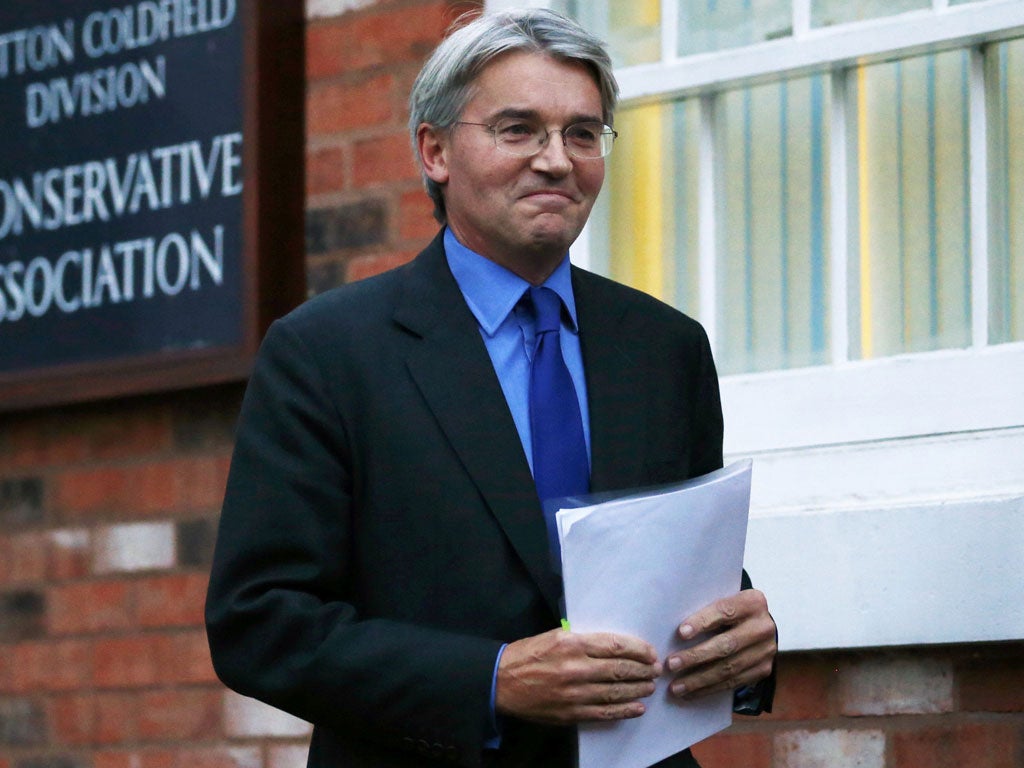Plebgate: The timeline of events that left Andrew Mitchell's career in tatters
From the row at the gates of Downing Street through to the damning High Court verdict, these are the key events in the notorious Plebgate affair
19 September 2012
Andrew Mitchell, Chief Whip at the time, cycles up to the gates of Downing Street, when he is told by police he must dismount before passing through the gates. A brief row follows, in which Mr Mitchell allegedly told the police: “Best you learn your fucking place” before calling them “fucking plebs”.
21 September 2012
The story becomes national news after The Sun newspaper runs it on the front page, reporting that Mr Mitchell swore at the officers and called them “plebs”. Mr Mitchell, facing calls to resign, denies ever having used the word “pleb”, but apologises for not treating the police with “the respect they deserve”.
24 September 2012
The police log of the incident is published in the Daily Telegraph, appearing to back up The Sun’s story. The police begin investigations into how the log came to be leaked.
7 October 2012
Mr Mitchell pulls out of the Conservative Party Conference, but members of the Police Federation stage protests outside the event over police funding cuts. The demonstrators wear t-shirts reading: “PC Pleb and proud”.
12 October 2012
Mr Mitchell attends a meeting with the police federation in his own constituency of Sutton Coldfield in a bid to end speculation around the topic and move on. But police tell the media after the meeting that Mr Mitchell refused to detail the events of the row at Downing Street and what he said to the police officer.
19 October 2012
Mr Mitchell resigns to Prime Minster David Cameron as chief whip, after less than two months in the role. He continues to deny having used the word “pleb”.
15 December 2012
A police officer in Scotland Yard’s diplomatic protection group is arrested on suspicion of misconduct in public office in connection with the leaked police log, and suspended from duty.
18 December 2012
A Dispatches investigation by Channel4News broadcasts CCTV footage of the row at Downing Street, which raises questions about what was written in the police log. The log had stated that members of the public who saw the incident and who were “visibly shocked” do not appear in the CCTV footage, while the report reveals that one of the “constituents” who emailed deputy chief whip John Randall claiming to have witnessed the row, was in fact a serving police officer.

19 December 2012
Scotland Yard announces it is investigating claims that an officer gave false evidence, and Met Police Commissioner Sir Bernard Hogan-Howe promises a “ruthless search for the truth”.
Over the course of the investigation, eight people are arrested and bailed, including five police officers.
28 March 2013
Scotland Yard reveals it has passed a file of evidence linked to the “plebgate” scandal to the Crown Prosecution Service, and Mr Mitchell confirms his lawyers have issued a libel writ against The Sun, the paper that wrote the original story. Days later Mr Mitchel lodges a formal complaint against the Scotland Yard over the apparent leaking of the police report into the affair.
26 November 2013
After two appearances in front of a select committee, the Crown Prosecution Service announces PC Keith Wallace, allegedly the officer who emailed the deputy chief whip pretending to be a member of the public, is to be charged with misconduct in a public office.
4 December 2013
Toby Rowland, the officer at the centre of the “plebgate” row, is confirmed to be suing Mr Mitchell for libel over claims that he lied about the incident.
10 January 2014
PC Wallis pleads guilty to misconduct in a public office at the Old Bailey. A month later he is sentenced to 12 months in prison.
26 February 2014
PCs Keith Wallis and James Glanville are sacked for gross misconduct. The latter of the two was fired after being found to the source of the leak of the original story to The Sun newspaper. Two months later PC Gillian Weatherley is also fired for gross misconduct after being identified as another source of the leak.
17 November 2014
The libel trial of Mr Mitchell suing The Sun and PC Rowland suing the former Chief Whip begins at the Royal Courts of Justice.
Over the course of the trial, Sir Bob Geldof is used as a character witness for Mr Mitchell, claiming he had never heard the politician use “the ridiculous and archaic expression ‘pleb’,” while other witnesses recounted Mr Mitchell’s ability to “erupt” or be “unpleasant until he got what he wanted”.
27 November 2014
Mr Mitchell loses his High Court libel battle over the incident that had been dragged out over the course of two years. The judge ruled that Mr Mitchell had likely used the word “pleb”, leaving the former Chief Whip with a legal bill of more than £1m and his reputation in tatters.
Join our commenting forum
Join thought-provoking conversations, follow other Independent readers and see their replies
Comments
Bookmark popover
Removed from bookmarks